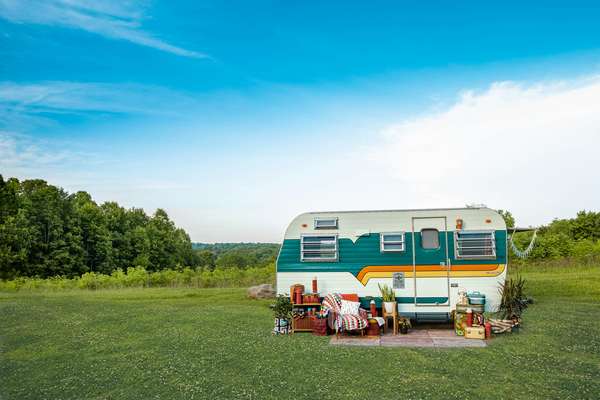
Picture this: you're cruising down the highway on your motorbike when suddenly your visor is splattered with a stream of greasy, bacteria-laden water from the caravan ahead.
In this article
Welcome to Australia's latest road menace—caravanners who think it's acceptable to dump their grey water tanks while driving.
Ken Wilson, a respected caravan safety instructor who travels the country with his wife Jenny, has had enough of what he calls the 'stupid, entitled attitude' behind this dangerous practice.
In recent months, Ken has been seeing and hearing of more and more caravan owners simply turning open the valve of their grey water tank and letting it chug out onto the road as they drive along. His message is blunt: 'Just don't do it. It's inconsiderate and dangerous.'
'We need more awareness of the problem because it's a s*****, entitled attitude'
What exactly is grey water?
Many caravan owners seem confused about what they're actually dumping onto Australian roads. 'Grey water is all the water from your caravan's sink and shower,' Ken explained.
'So people washing up at their sink, all their greasy pots and pans or the rinsing out [of] raw meat trays; or people taking a shower, taking a pee there, or even rinsing off after s**.'
That's right—this isn't just soapy water. The act leaves Australian roads splattered with 'grease, oil and bodily fluids'.
Even worse, grey water stored in a caravan tank can turn into black water in as little as 12 hours in the Australian heat. Black water is considered nastier as it has a higher level of contaminants.
'It is against environmental laws,' Ken explained. 'This release of "water" not only sprays following vehicles, it also falls onto the road on the line used by most motorcycle riders, spraying the rider, their clothes and visor with bacteria-infected "water"... It's disgusting.'[/p;;']
Grey vs black water: what's the difference?
Grey water: Water from sinks and showers containing soap, food scraps, oils, and potentially bodily fluids
Black water: Water from toilets and urinals, plus grey water that's been sitting for 12+ hours in heat
The danger: In Australia's climate, grey water quickly becomes black water with higher contamination levels
The financial sting: fines that could ruin your holiday
If you think dumping grey water while driving is a harmless shortcut, think again.
In NSW, the Environment Protection Authority (EPA) says small-scale dumping offences can result in an on-the-spot fine of up to $1,000 for individuals, or $2,500 if the waste is dumped in a sensitive area, such as at a national park or beach.
Fines vary across states and territories for dumping offences (the NSW figures above are examples).
But that's just the beginning. The Environment Protection Authority (EPA) has a designated Illegal Dumping Unit (IDU), whose sole task is to identify, investigate and stop people from illegally dumping waste.
If caught, the penalty can be fines as high as $500,000 or even four years imprisonment.
Health hazards for everyone on the road
The impacts go far beyond environmental concerns. This release of 'water' not only sprays following vehicles, it also falls onto the road on the line used by most motorcycle riders, spraying the rider, their clothes and visor with bacteria-infected 'water'.
Ken has documented evidence of the problem, sharing photos of roads at a caravan park near Newcastle where visible marks were remnants of grey water dumping that occurred over three days earlier.
He insists that not only does it leave a stream of 'greasy, slimy' water on the road, but it also pollutes the environment.
[[]Victoria's Environment Protection Authority notes that grey water and other wastewater can contain contaminants that affect water quality, harm plants and animals, and pose health risks to humans—'for example, pathogens can cause eye infections, respiratory infections and gastrointestinal illnesses'.







